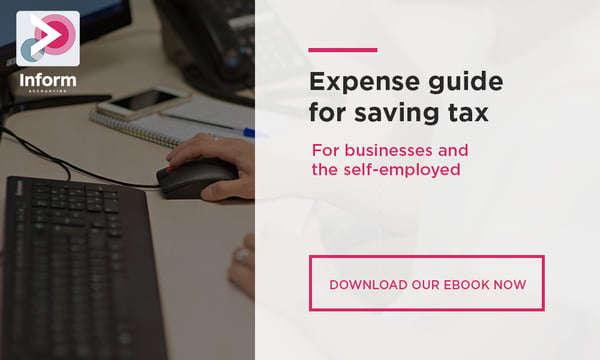BLOG
What happens if your business is ‘chosen’ for an HMRC enquiry?

HMRC has the power to enquire into any return and request any information to establish whether that return is correct. No reasons need be given and invariably will not be disclosed.
An enquiry may be:
- Full - checking a return as a whole including the accounts.
- Random - standard procedures as part of the overall crackdown on tax avoidance possibly targeting specific businesses deemed as high-risk. Previous enquiries have targeted the construction industry, private health care professionals and more recently, those involved with cryptocurrencies and obviously 'cash' businesses.
- Aspect (or 'compliance check').
A full enquiry is both costly and time-consuming, for both sides, therefore should a business find itself the subject of one then it will be for a good reason – at least in the HMRC's eyes. As such, an enquiry letter will more likely be for an aspect enquiry where HMRC look at specific areas or claims relating to a return e.g. HMRC may have received information that a property is let but the owner has not completed the letting pages of the return or the taxpayer may declare a small amount of tax when turnover is high. Some compliance checks begin as ‘aspect’ checks before being upgraded to full enquiries if HMRC believes serious issues are evident.
Which businesses can be chosen?
HMRC identifies cases using various means, having invested in technology that collects data, analyses information, highlighting potential cases. Their 'Connect' computer system obtains information from a range of sources - newspaper advertisements showing a trade but no accounts submitted, lists of market stall holders, DVLA records, data of racehorses and their owners, estate agents details of rental properties or house sales, local authority lists, planning applications, Land Registry, credit card information from issuers, data from companies such as eBay, PayPal and Airbnb.
However, a sizeable number of investigations are made due to calls to HMRC's fraud hotline or submission of an online form headed: "HMRC Fraud Hotline - Information report form". Currently HMRC is concentrating on 'compliance checks' specifically relating to suspected CJRS fraud. HMRC believes that between 5% and 10% of CJRS grants contain mistakes or have been illegally claimed and has apparently received over 21,000 reports from the public of suspected CJRS fraud; 26,000 cases are being looked into, some of which include criminal investigations. The process is part of the government’s pledge to invest in a Taxpayer Protection Taskforce created to focus on fraud committed on any coronavirus support package.
Enquiry process
The first indication of a full enquiry is the receipt of a letter accompanied by a Code of Practice leaflet, confirming the type of enquiry, the information expected to be provided and the deadline for providing this information. A Statement of Assets may be included enabling the Inspector to ascertain whether any assets have been acquired of which HMRC was unaware, payment of which might have been via the use of undisclosed earnings.
A Disclosure Report will be issued at the end of an enquiry to include a Certificate of Full Disclosure signed by the taxpayer to the effect that a full disclosure has been made ‘to their best knowledge and belief’. Should any additional tax be due then a tax penalty will be levied, the amount being determined by consideration of the reasons why the underpayment arose and the amount.
CJRS grant compliance check letters confirm that HMRC are looking into whether the taxpayer has 'received a CJRS grant payment and may need to repay some or all of the grant you have received. This is because you may have:
- claimed for a CJRS grant which is more than you are entitled to based on the information we hold about your employees
- not met the conditions to receive a CJRS grant - for example by including employees in your CJRS claim who are not eligible.'
A response is required within a set timescale (sometimes just two weeks from the date of the letter) otherwise a full compliance check will be opened.
HMRC has an official time limit of five years and ten months after the tax year end for compliance investigation which can be extended to 20 years where fraud or negligence is suspected.
Get in touch
Get in touch with us today to find out how we can help keep you compliant, and benefit from our expert advice. Give our Business Development Manager a call on (0121) 295 8884, or email charlie.sangha@informaccounting.co.uk.




.jpg?width=1500&height=1000&name=amy-hirschi-K0c8ko3e6AA-unsplash-(5).jpg)

